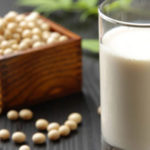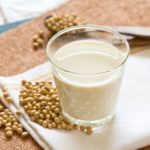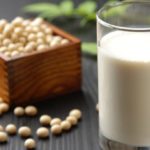Plant-based milk alternatives have become increasingly popular, especially for those with allergies or intolerances to dairy or other animal-based products. Here’s a rundown of the different types of plant-based milk options available on the market:
1. Soy Milk:
Soy milk is a familiar alternative, having been around since the latter half of the 20th century. It has a low-fat content, with 100g of soybeans containing only 1.61g of fat but providing 7.9kCal. Soy milk is also gentler on the stomach than cow’s milk or other animal-based milk, making it suitable for most people of all ages. Soybeans contain estrogen, which is similar to female sex hormones, making soy milk a popular choice for women.
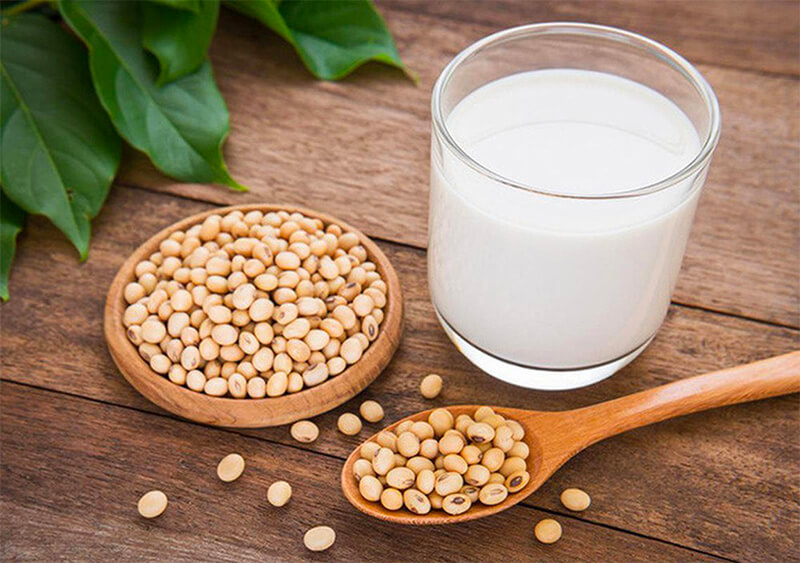
2. Corn Milk:
Originating from the Americas, corn milk is made by grinding corn and adding sugar and butter for a richer flavor. Corn milk is easy to drink and has a sweet, distinct corn aroma. It is also lactose-free, making it a healthy, safe, and gentle option. Corn milk is known for its sweetness and unique flavor, and it also has anti-aging properties and provides energy to the body.
Choose from a variety of corn milk options available at Bach Hoa XANH:
3. Almond Milk:
Almond milk is a favorite among Americans. While almond milk may lose some fiber compared to whole almonds due to the cooking and dilution process, it still retains significant nutritional value. If you use 72g of almonds to make 262g of milk, you’ll get a good ratio that maintains the nutritional content.

4. Walnut Milk:
Walnuts are often referred to as the “king of nuts,” and for good reason. They are packed with nutrients, including omega-3 fatty acids, antioxidants, vitamins, and more. Walnut milk is gentle on the stomach and is considered a safe and optimal source of nutrition, especially for those allergic to animal milk. According to Nutrition Australia (Australia), plant-based milk alternatives like walnut milk provide essential nutrients such as protein, low GI, and vitamins.
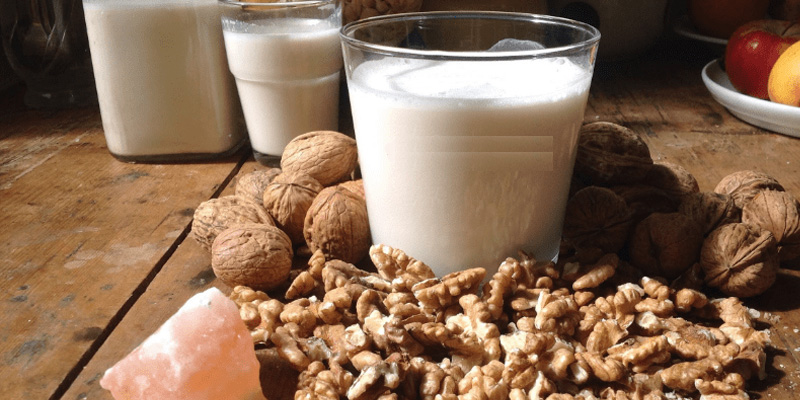
- Protein: Most nuts are naturally rich in protein, providing essential energy and supporting neurotransmission, muscle regeneration, and a healthy body composition.
- Low GI: Plant-based milk alternatives have a low glycemic index, which helps maintain stable glucose and blood sugar levels, according to the Diabetes Research organization (UK).
- Vitamins: They are a good source of vitamins B, E, and D.
With these nutritional benefits, it’s no wonder that walnut milk is often considered one of the best plant-based milk options for overall health.
5. Lotus Seed Milk:
Lotus is considered Vietnam’s national flower, and almost all parts of the plant are utilized. Similar to corn milk, lotus seed milk is made by grinding and blending lotus seeds with water and milk, then filtering out the solids. Lotus seeds are rich in protein, lysine, folate, and have low levels of saturated fat and bad cholesterol. Research shows that 100g of lotus seeds contain 350 calories, 65g of carbohydrates, and 17g of protein.
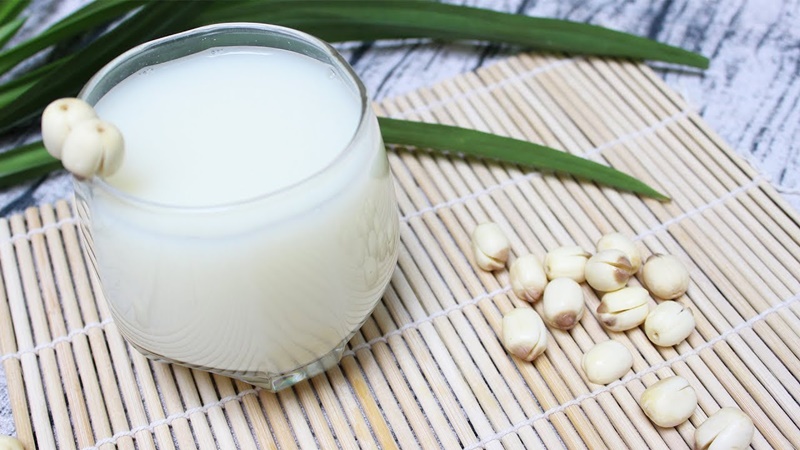
6. Red Bean and Green Bean Milk:
Red bean milk offers numerous natural benefits, including weight management, vitamin and protein intake, and muscle health. It is an excellent choice for diabetics and those with heart health concerns, as red and green beans are rich in fiber, vitamin B, folate, magnesium, and potassium.

7. Peanut Milk:
Peanut milk has a distinctive fatty flavor and is familiar to most people. Peanuts have very little fat and are considered an oilseed, making them beneficial for heart health. They are also a good source of protein, especially for vegetarians or those allergic to animal-based proteins. Peanut milk has a low carb and high protein content, resulting in a very low glycemic index, making it suitable for diabetics.

8. Pumpkin Seed Milk:
Plant-based milk alternatives are not limited to expensive nuts like almonds and walnuts. Pumpkin seeds are a familiar and affordable option, and pumpkin seed milk offers various health benefits. It is rich in vitamin B, zinc, phytosterols, and vitamin E, providing essential energy, reducing anxiety, and offering antibacterial and potential cancer-fighting properties.
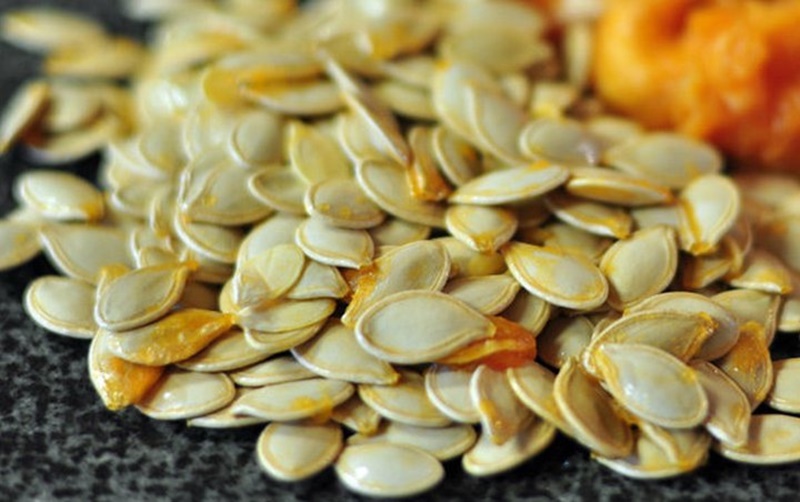
9. Oat Milk:
Oat milk is an excellent choice for diabetics and is often included in their diets. Oats are packed with nutrients like fiber, protein, and healthy fats, making them ideal for those watching their weight while still needing energy for a productive day. Oat milk is good for digestion and heart health and is especially beneficial for children and the elderly. It also helps maintain smooth, firm skin and a balanced figure.
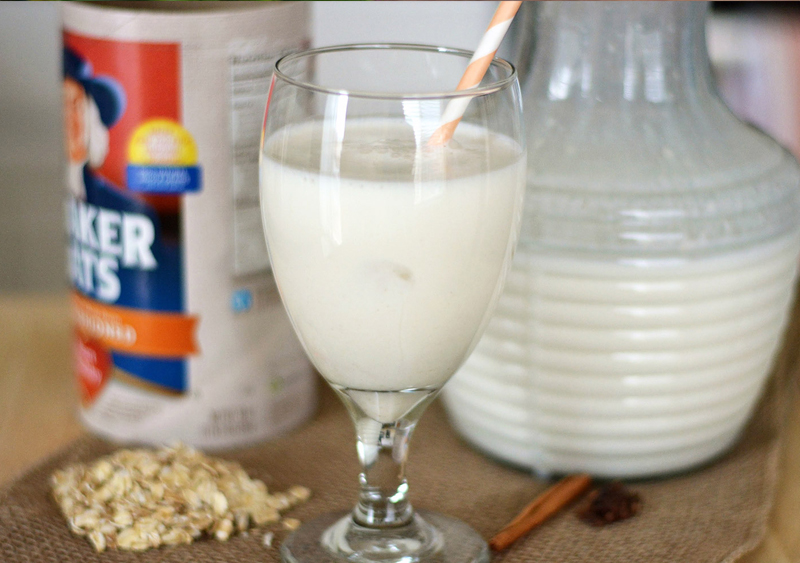
10. Sesame Milk:
Sesame, or sesame seed, is a familiar ingredient in Vietnamese cuisine, often used in baked goods. However, sesame milk is also a delicious and healthy option. Sesame is a good source of vitamin E, B, and calcium, promoting bone development in children. Additionally, it has beauty benefits, helping to firm and rejuvenate the skin and darken hair, and supporting digestion.

11. Millet Milk:
Millet is a humble yet powerful grain. It provides vitamins B1, B2, A, and E, along with protein and minerals like phosphorus, manganese, and iron, in higher quantities than other foods. Millet contains melatonin, which stabilizes mood and improves sleep quality. It is also rich in iron, aiding in blood regeneration, and contains amino acids and silicic acid, which can help prevent miscarriages and nausea in pregnant women.

For further reading: 2 delicious and creamy plant-based milk recipes you can make at home
This article has introduced you to 11 popular plant-based milk alternatives readily available in supermarkets and grocery stores. We hope this information helps you make informed choices for your health and well-being!
Distinguishing between Real Soy Milk and Chemical-Laden Milk
Consumers are concerned due to the increasing availability of soy milk blends made with unhealthy ingredients such as fatty powders and artificial flavors. Despite its cooling taste and health benefits, this development is posing a challenge to enjoying the health benefits of this popular beverage, especially during hot weather.
























